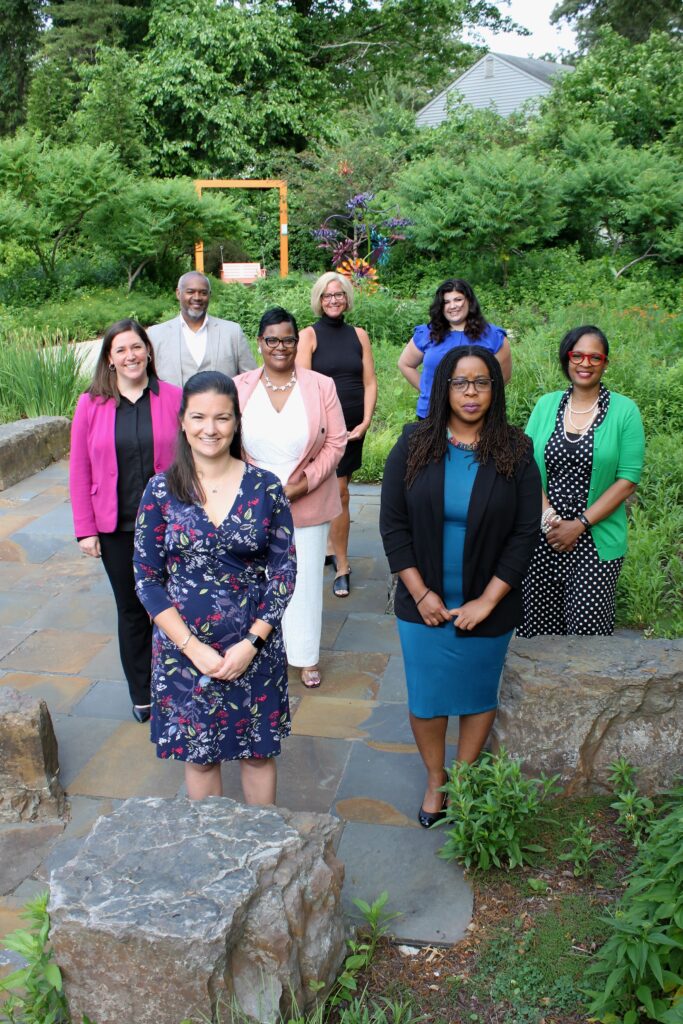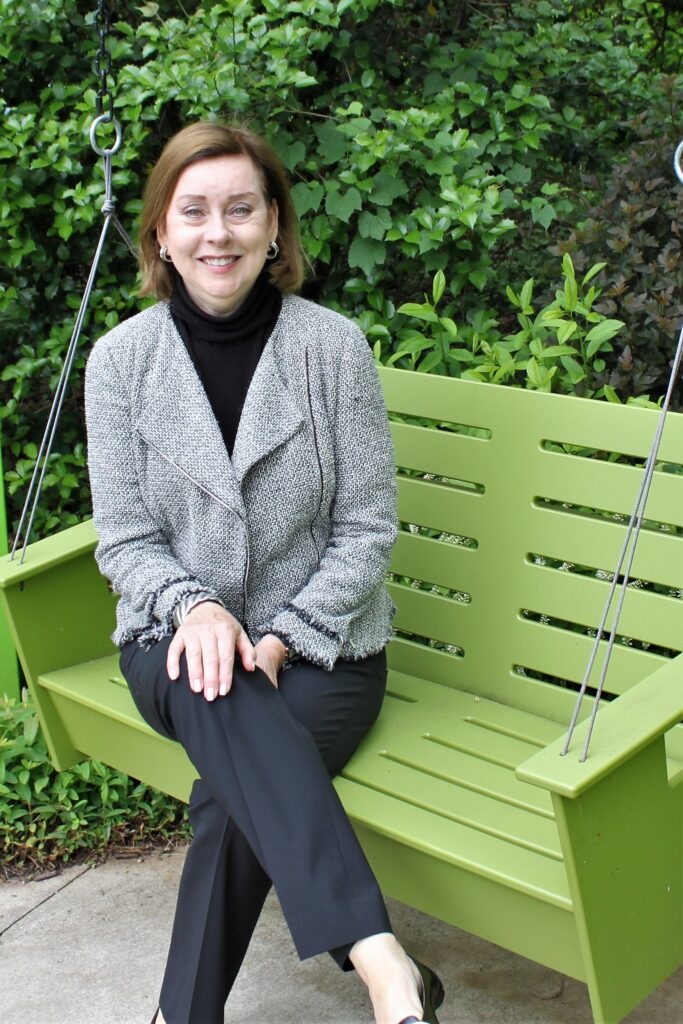Have you heard of the silver tsunami?
How a group of dedicated team members are redesigning care for patients facing a dementia diagnosis

Members of the Dementia Advisory Group.
The day Joe stood in a parking lot and forgot where he parked was a hint. But, so what? Even teenagers forget where they parked their car.
Then he called the kitchen sink the tub. He called his wife Veronica by his daughter’s name. When he told his friend about how he sunk an amazing putt three times in one conversation, Veronica grew concerned. His doctor confirmed what every aging person fears: He had early onset Alzheimer’s disease.
Maryland expects an 18-percent increase in the number of people ages 65 and older with Alzheimer’s disease and related dementias by 2025.
“Dementia touches all of us,” said Karen Frank, The John & Cathy Belcher Institute‘s director. “With 10,000 people a day turning 65, it’s a disease that is going to be around for a long time.”
Preparing for this “silver tsunami” is the reason behind the institute’s Dementia Care Initiative. It seeks to change the hearts and minds of medical professionals, government officials, and the community. The goal is to share how early supportive and coordinated care can make a difference for a family with a loved one facing dementia.
“For us to make that happen, we need to involved a lot of people,” Frank said. “We need partnerships with our fellow health care community. We need community engagement on many levels. And we need to continue our efforts to educate the community about supportive care, hospice care and grief support.”
We created a dementia advisory committee with team members from several disciplines. They are developing an innovative plan to answer the question: What can we do differently to support those with dementia?
The first phase seeks to educate the community about how palliative, or supportive, and hospice care can give dementia patients and their families the best quality of life possible. It includes a three-month pilot education program for seven local residential memory care centers. It also includes a partnership with Encore Creativity for Older Adults to explore ways to bring music to our programs. And we launched a six-episode podcast, “Life, Death and What Matters In Between.”
We also partner with the Anne Arundel County Department of Aging. With their help, we are certifying team members as Dementia Live trainers with AGE-u-cate, a national training program for dementia. With virtual reality technology, the program’s equipment helps people experience the world as if they had dementia.

Karen Frank talks about the Dementia Care Initiative: “Donor dollars help us to be creative, curious and innovative.”
Thanks to donations, we can fund more Dementia Live training and equipment to expand our expertise to help more patients and families. “Every day we ask, ‘How can we do this better?’” Frank said. “Donor dollars help us to be creative, curious and innovative.”
People like Joe and Veronica have a long, scary journey with dementia. Having a team who understands what is ahead makes their path less difficult. Patients and families don’t have to be alone as they face the obstacles of a dementia diagnosis. We are thinking differently about how to help Joe and Veronica thanks to donors who support innovative strategies.
Help us help more families facing dementia. Click here to donate to our dementia care program.


